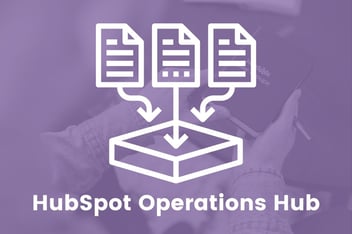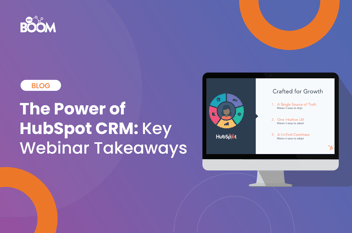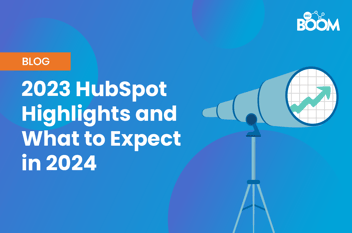Customer relationship management (CRM) software was developed about 30 years ago to help businesses better manage customer relationships along with all the data involved. Today, when the term CRM comes up in discussion, Salesforce is usually the brand that follows. Launched back in 1999, it revolutionised the CRM software industry with its cloud-based solution Sales Cloud. In terms of market share, Salesforce leads with around 20% and over 150,000 customers.
That said, they aren’t the only player in the game. HubSpot is exponentially growing to be one of Salesforce’s top competitors in the industry, seemingly occupying a gap in the market in being most suitable for start-ups, SMEs and those looking for a sales solution that better integrates with their marketing and service channels.
So which one is best? When choosing a CRM like HubSpot or Salesforce, it’s important to evaluate and compare certain elements of the software. By the end of this blog, you’ll hopefully be able to make an informed decision on what CRM would be the best fit for your business’s needs.
Management and maintenance
HubSpot is uniquely dedicated to ease-of-use and simplicity for admins, reps, and managers. This way, you spend less time and money getting your sales system to work how you want it to. Customers have the freedom to organise and administer their CRM without the need to hire a dedicated admin.
Salesforce has a significantly steeper learning curve, where implementation and maintenance requires experienced and well-trained administrators. Most Salesforce customers need to bring in a consulting agency, hire one or more full-time admins, or have current employees train to become Salesforce administrators.
Functionality
HubSpot Sales Hub delivers on contact management, sales analytics, sales automation, pipeline management, and much more. Sales Hub products are trusted by thousands of growing mid-market B2B companies, all the way to enterprise brands, scaling with them as they grow.
Salesforce offers advanced, top-of-the-line contact management, dashboards, analytics, pipeline management, sales automation, forecasting as well as much more. They offer a wider range of powerful products for businesses of all sizes.
Both HubSpot and Salesforce offer the most powerful, complete tools for sales teams on the market, though admittedly Salesforce has the advantage in terms of functionality due to how long it’s been operating in the sales space. HubSpot is quickly catching up though, having grown more in the years since Sales Hub’s debut than Salesforce ever has. So whilst Salesforce may technically have the leg up in functionality at this moment, don’t count HubSpot out just yet.
Usability
HubSpot is consistently ranked the most user-friendly CRM and B2B software, with rep adoption often cited as a key benefit among HubSpot users. As a result, customers making the switch to HubSpot often see an improvement in their data quality. When paired with HubSpot’s powerful reporting and automation features, high-quality data gives admins greater visibility into the overall health of their business.
Salesforce is incredibly powerful with robust reporting that’s endlessly customisable. However, this customisation can take time to implement and require training to master, not just during onboarding but for new joiners as well.
Scale and Customisation
HubSpot’s user friendliness means that you have the flexibility to change and adapt your HubSpot instance over time, layering in more customisation and complexity as you scale.
Salesforce offers endless customisation for the most complex organisations. This level of customisation allows for best-in-class forecasting and reporting dashboards.
However, these advanced features may require more admin support, which can make it difficult for businesses to change and adapt their Salesforce instance over time. As a business evolves, it’s important for your CRM to be able to grow and change with your business needs. HubSpot and Salesforce both offer powerful software for fast-scaling businesses.
Support
For HubSpot, support and customer success teams are available to all customers with phone and email support at no extra charge for Pro and Enterprise customers. Salesforce charges 20% of your net contract price for 24/7 premier support, while additional feature access costs 30% of your net contract price. With percentage pricing as you spend more on additional seats and add-on features, you’ll have to pay more for the same support. When choosing a Salesforce support plan, you’ll want to carefully forecast how much your team will need.
Ecosystems
HubSpot’s App Marketplace takes the same approach to 3rd party integrations as it does its own software; heavy on power, ease-of-use, and quality. Installing and configuring integrations via the marketplace is simple with over 500 apps and integrations, many of which are native (HubSpot-built) integrations.
Salesforce’s AppExchange is the industry’s largest and broadest CRM app marketplace, offering a wide variety of options for different requirements. AppExchange is the fast and easy way to extend Salesforce with over 3,400 apps and integrations.
HubSpot and Salesforce both offer excellent add-on functionality through a robust app ecosystem, and whilst Salesforce integrates more broadly with other softwares, HubSpot offers other solutions (like marketing and service software) that mean integration may be less necessary. Both also offer open APIs and developer tools to help you cater your CRM to your company should you choose to go the custom API route.
All-in-one Platform
HubSpot’s CRM and supporting Sales, Marketing, & Service suites have all been built by HubSpot from the ground up. The result is a unified and consistent user experience whereby data, reporting, and individual tools are all similar and work in concert with each other. Salesforce offers more products and tools, but their breadth can come at the cost of usability and maintenance.
HubSpot and Salesforce are both all-in-one platforms. They both offer a CRM along with all the tools your front office teams need including sales, marketing, and service tools. Choosing an all-in-one CRM for your teams to use will not only unite your work and data, but also create a better customer experience.
The result
While there are many CRM options on the market, HubSpot and Salesforce are consistently rated as the top two options in terms of satisfaction and adoption. Both platforms provide large sales teams with a robust solution that scales with growth. Both Salesforce and HubSpot have their positives and negatives, so ultimately, the decision as to which one to go with will depend on your CRM needs. To see how HubSpot stacks up to your business requirements, click here to speak to our Growth Consultant for a demo.
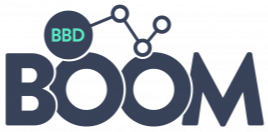
.png)
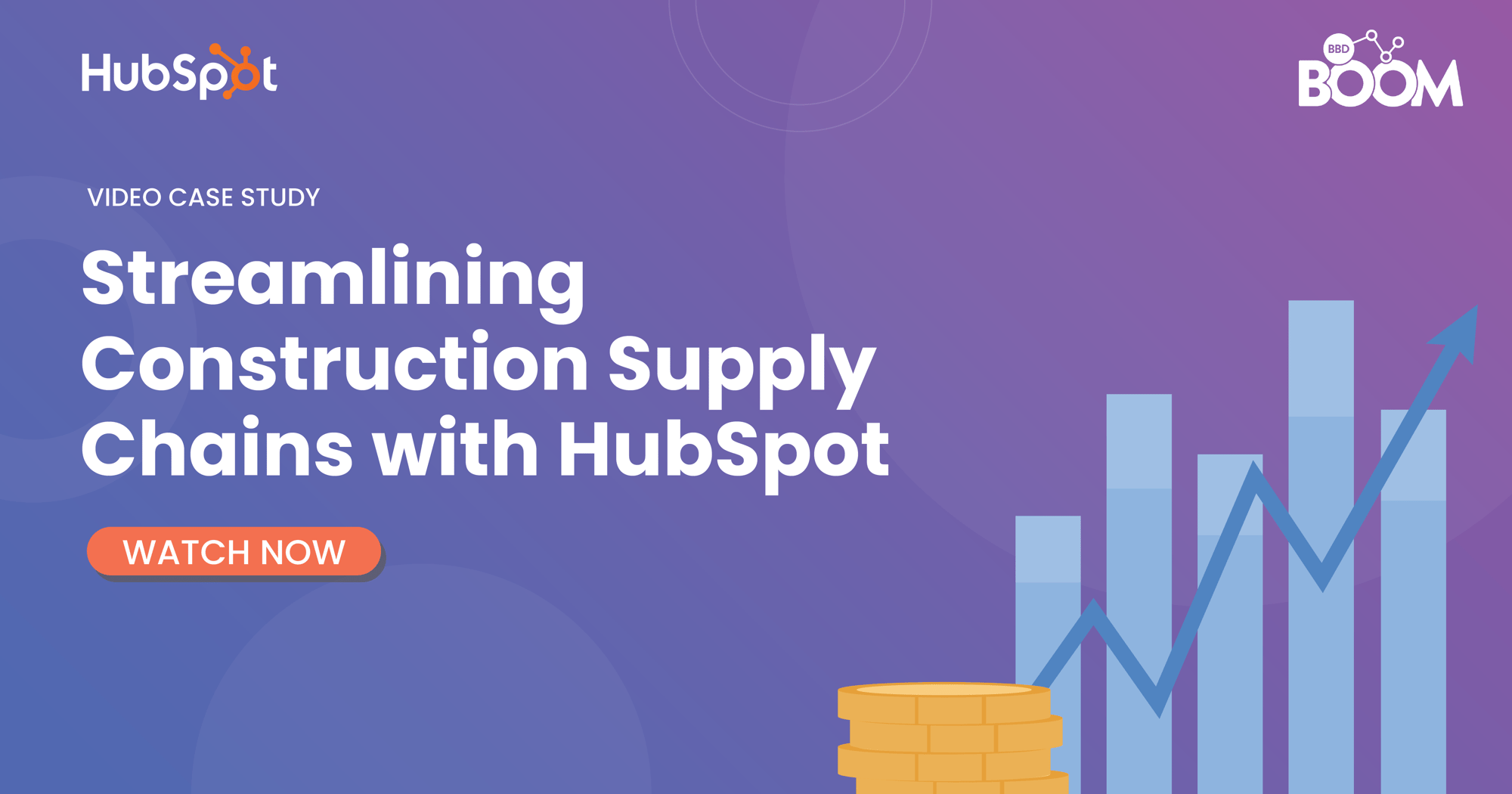
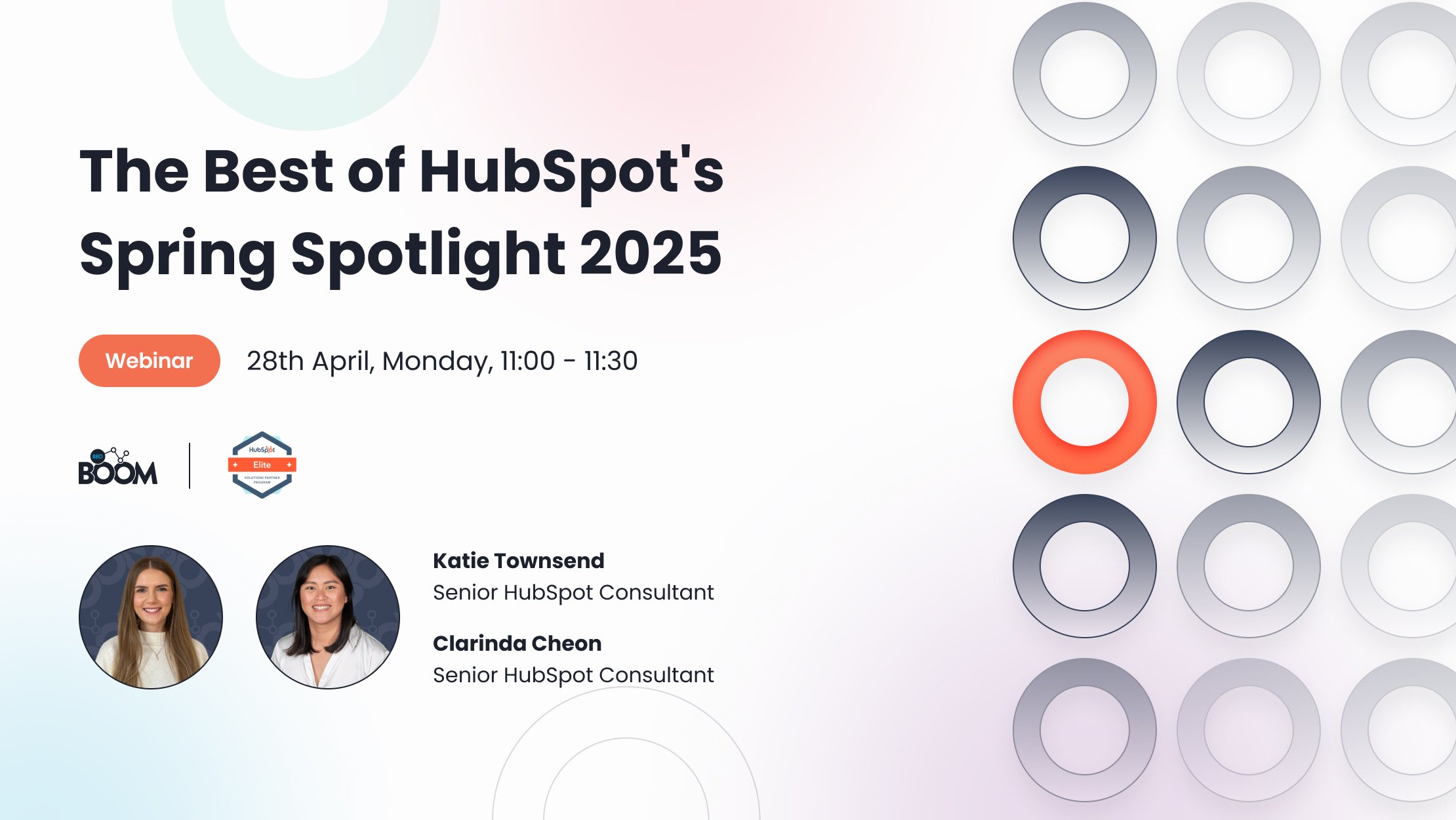

.jpeg?width=50&name=1573666887630%20(1).jpeg)

.jpeg?width=90&name=1573666887630%20(1).jpeg)
